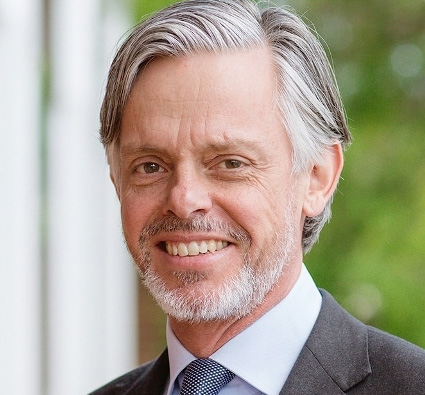Message from the Director
The institute is named for Paddy Glynn, who was the last of the Founding Fathers to sit in the Commonwealth Parliament. Glynn was elected to the first House of Representatives in 1901. He was re-elected unopposed in four elections, and prevailed over opponents in two more. In the election of 13 December 1919, however, the Honourable Patrick McMahon Glynn KC MP, Minister for Home and Territories in Billy Hughes’s Nationalist government, was defeated 9,217 votes to 9,468 by his Labor opponent, Joel Moses Gabb.
As his biographer, the Reverend Professor Gerald Glynn O’Collins SJ AO, has observed, when Glynn lost his seat, some of the giants of the Federation period – among them, Kingston, Deakin, Reid, Downer, and Forrest – were dead, and Barton would join them a month later. None of the Founding Fathers sat in Parliament in Canberra, although Glynn attended its inauguration as the national capital in 1927 as one of three surviving members of the first Parliament. “Glynn’s day was done”, as Father O’Collins says, but an ending is always a beginning. A Commonwealth had been well and truly established. It was now up to the country to keep it.
The task of keeping a Commonwealth – of ensuring that our life in common continues to flourish – is not a task that has an end, and contributing to this task is one of the reasons the PM Glynn Institute was founded.
The vagaries of politics and culture in democratic societies today force us to confront some foundational questions, which until quite recently were thought to be long settled. What do we share? What do we owe each other? How do we disagree? How do we live together? Exploring what the answers might be in twenty-first century Australia is an important part of the institute’s work, and its commitment to public policy for the common good.
Download the 2020/21 PM Glynn Institute brochure (PDF, 9MB)
Our work at a glance
Information on some of the Institute's work and publications is summarised in this series of easy to read brochures.
Hope in Healthcare
Indigenous Affairs
Occasional Papers
Monographs Series
Contact us
Visit
Level 14, Tenison Woods House (Building 532)
8-20 Napier Street, North Sydney NSW 2060
Call
(+61) 2 9739 2184
Email
pmg@acu.edu.au
Mailing address
PO Box 968, North Sydney NSW 2059
Subscribe
Email pmg@acu.edu.au to sign up to our mailing list.

